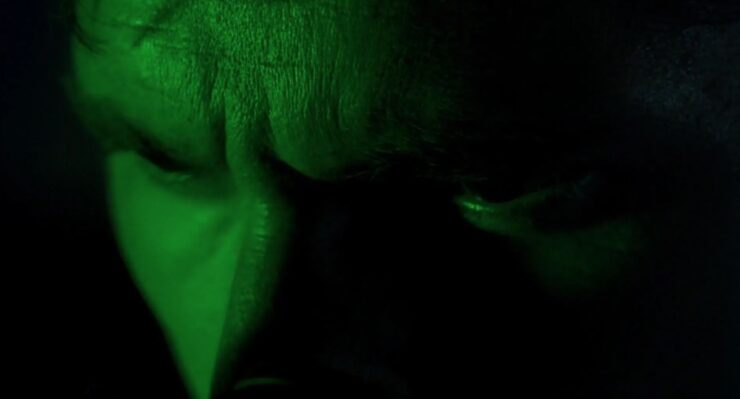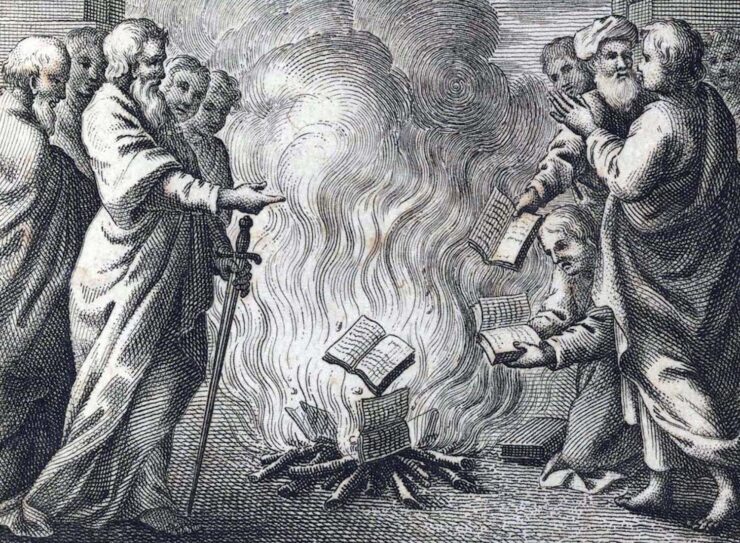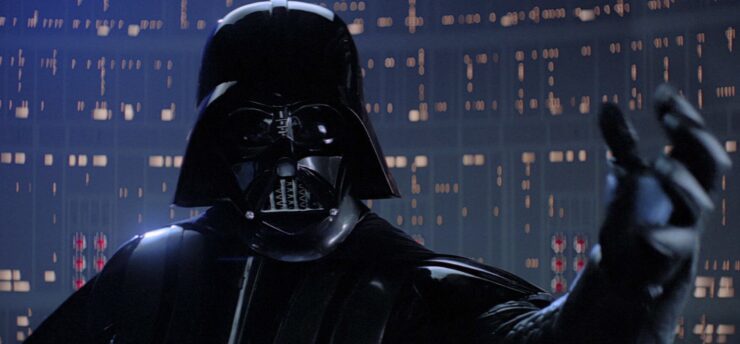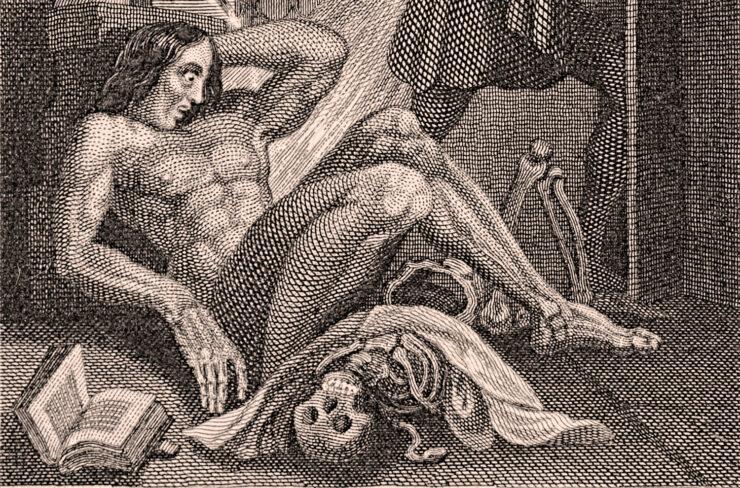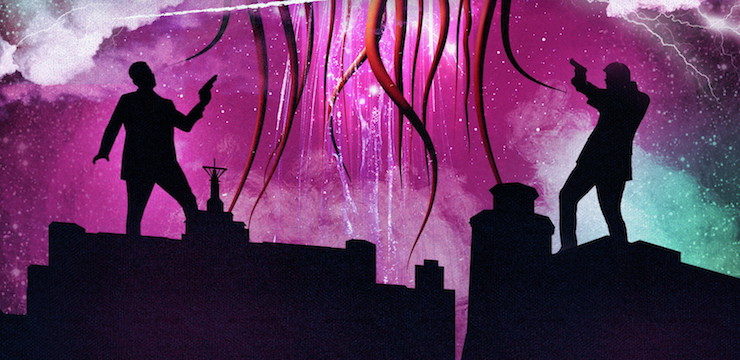Twenty years ago, on the twentieth day of June, one of the strangest and most memorable superhero films I’ve ever seen was released; it was named Hulk, and focused on the eponymous Marvel character. Ang Lee, the director of the film, had already enjoyed great success with his adaptation of Jane Austen’s Sense and Sensibility (1995), and his martial arts movie Crouching Tiger, Hidden Dragon (2000). Hulk wasn’t as critically successful as either of them, nor is it as fondly remembered today. Ang Lee, discussing the film earlier this year, reflected on it getting a mixed reaction, and also explained that he had approached the work as a ‘psychodrama” and “sci—fi/horror” at a time when the superhero genre didn’t really exist.
I was still a child when I first saw Hulk in 2003, barely a teenager, and I remember not quite knowing what to think of it afterwards. It may have been my first proper introduction to the character, as I didn’t even know about the existence of the classic Bill Bixby television series at that time. My father, on the other hand, admired the film. I don’t know why. Perhaps the theme in the film of fatherhood—something that Roger Ebert, who also appreciated the film, mentioned in his review—spoke to him.
Hulk is about Bruce Banner (Eric Bana), a scientist afflicted with a bizarre condition where he starts to transform into a huge beast (a “mindless hulk,” as he calls it) due to something his father David (Nick Nolte) inadvertently passed on to him via experimentation on himself years beforehand. Bruce’s fellow scientist and ex-girlfriend Betty Ross (Jennifer Connelly) is deeply concerned about him and finds herself trying to help him even while fearful and confused, while her own father, a military general (Sam Elliott), is more interested in keeping Bruce and Betty apart and dealing with David, someone he once worked alongside. The film ends with Bruce defeating his father by actually giving in to David’s demand for him to share his power, and then going into hiding, while Betty returns to her daily life, quietly sad and watched over by her father.
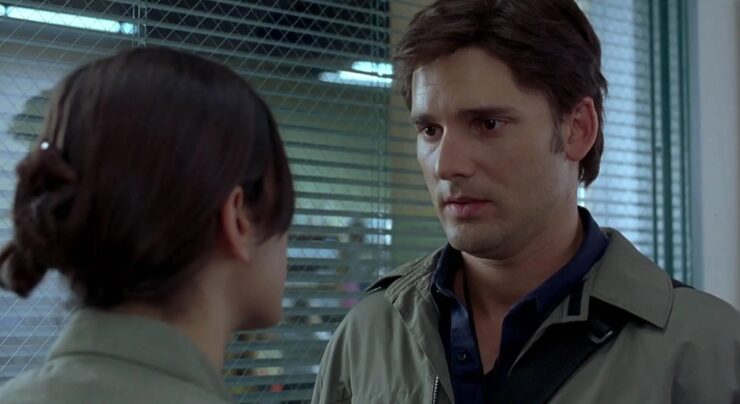
When I rewatch the film now, as an adult, I’m mesmerised and unsettled; Hulk is dark and haunting. There is almost no humour in the entire film, and it is mainly focused on pain, both physical and psychological. It’s startlingly unlike any other superhero film I have come across, with its core of psychological pressure rather than adventure and action. There is frankly very little actual heroism on display. (Unsurprisingly, Lee himself said he didn’t see Hulk as a superhero, but instead as a tragic monster.)
There have been more attempts to make Hulk-focused movies since Lee’s work, but they have never left as much of an impression on me.
Edward Norton’s version of the character in The Incredible Hulk (2008) is sympathetic, but the film is less ambitious and not as interesting as Lee’s work. Mark Ruffalo’s version in The Avengers (2012) retained some of the darkness of the character, but the intensity is drastically reduced when there are so many other characters around in the film with such powerful personalities and stories of their own. Interestingly, there has been no live action Hulk-focused film since Norton’s over a decade ago. Joss Whedon, speaking about the difficulty of making a film focused on the Hulk, wondered if audiences would be able to get behind a character who spent the majority of the story attempting to stop the very thing they came to see (the transformation, presumably) occurring. I find this to be a strange dilemma, because (at least to me), the moments in Marvel works where Banner transforms and the Hulk starts to go on a rampage are usually the most boring, and this is particularly true in Lee’s film. The only time I grew bored watching Lee’s Hulk was during the heavy action near the end, where the Hulk is breaking out of the military base and destroying tanks.
What I come to see in Hulk films isn’t Banner transforming—it’s the psychological tension at the core of Banner’s character, the struggle for control over his own self, not simply the result of when that control breaks. Lee is often connected with an interest in repression, and in this sense, he is the perfect director for this specific character. He referred to the film as an “extension” of his prior work, and you can see this in the continued emphasis on the unspoken. When you watch the emotional tension between Bruce and Betty, the nervousness and quiet observation they show, you may recall Colonel Brandon staring at Marianne as she plays the piano and sings in Sense and Sensibility, or Yu Shu Lien and Li Mu Bai refusing to confront their feelings for one another in Crouching Tiger, Hidden Dragon. There is a small moment early in Hulk where Bruce seems to silently focus on Betty at her computer, but turns away as soon as she looks back at him; it’s not clear whether he was watching her and reflecting on their failed relationship, or just waiting for her update on the experiment. (I think it to be the former.) Much later, she hugs him as they are surrounded by police, and you suddenly realise how careful she has been with her own emotions before this; she looks up at the police and then starts to cry, squeezing Bruce tightly. He can’t see her expression, but it’s as mournful as she has looked in the whole film.
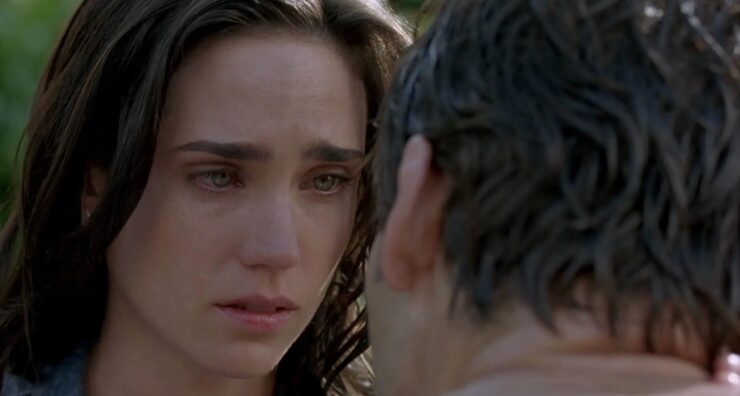
Tony Tanner once said that Sense and Sensibility (Austen’s novel itself, rather than an adaptation) was about “secrecy and sickness”; this description is an even better fit for Lee’s Hulk. The first clue is the music. The film opens with an unsettling and simple theme by Danny Elfman that feels like something is slowly dissolving. It’s an excellent way to capture the sensation of Banner failing to control his emotions, and it’s used in this way throughout the story. My favourite example of this is in Bruce’s first real transformation scene, where Lee sets the music to a feverish sequence of Bruce’s memories: Betty screaming a warning to him, his mother carrying him, a door breaking, a knife. By focusing so much on the psychological aspect of this process, Lee creates the best version of Banner’s transformation into the Hulk that I have yet seen.
One of the first things we hear about Bruce when he is a child is that another child hit him and he simply stood there shaking, with no sign of tears. His mother worriedly notes that this is just how he is, that he’s “so bottled up.” When Bruce is older, and now living with a foster mother, she opines that there is “something inside” him, something he’ll share with the world one day. We then see him as an adult in an awkward conversation with Betty. Once again, the same theme appears; Betty jokes about how Bruce almost sounds “passionate” when talking about his work, and scoffs at the idea that they “were close” during their relationship. In another conversation later she insists that there is more to him than he likes to show, that there “couldn’t be any less”. He almost seems to be described as a cipher to other characters, something that exists purely internally.
Bruce’s father is, in some ways, the opposite. For all that Bruce is repressed, David is an extraverted force of nature. (Nolte plays into this so much that some critics found his performance unintentionally amusing. Personally, I found it convincingly manic.) While Bruce fears giving in to his emotions, David embraces them, and in fact argues that the Hulk is his real son, and that Bruce is just the shell. The other main antagonist (Glenn Talbot, played by Josh Lucas) agrees. This would seem to paint the Hulk condition in a completely negative way, but Bruce himself says that he is scared because when he loses control, he actually likes it; he finds “power and freedom”. The same power that Bruce acknowledges that he both enjoys and fears is what destroys David; the power comes from Bruce’s released emotions, but those emotions are so overwhelming, so saturated with fear and anger and pain, that it’s simply too much for anyone. Even David, so wild and unrestrained, ultimately ends up begging for Bruce to take it back, because he simply cannot tolerate it.
Imagery of containment and darkness are all over the film. Bruce’s traumatic memory features a closed door where he can only see the shifting shadows of his father and mother on the floor. He is imprisoned repeatedly as an adult, tortured and taunted by Talbot to try and get him to release his control over his emotions. You see him try to hide in the dark as the Hulk during a scene with Betty, and David ominously seems to watch his house from the street at night. Bruce’s traumatic memory is so locked down that he has to be rendered unconscious and then subjected to mental probes that reach into his subconscious mind and forcibly dig it out. In one of their final scenes, both Bruce and David are chained and enveloped by complete darkness, pariahs to be carefully observed and terminated if they lose control. Characters continually hide and mislead other characters. David disguises himself in order to get closer to his son, Betty secretly calls her father and his men to subdue Bruce, Bruce himself represses the memories that are too painful for him. When things come to light, however, there is very little relief; if anything the secrecy and confusion gives way to sadness.
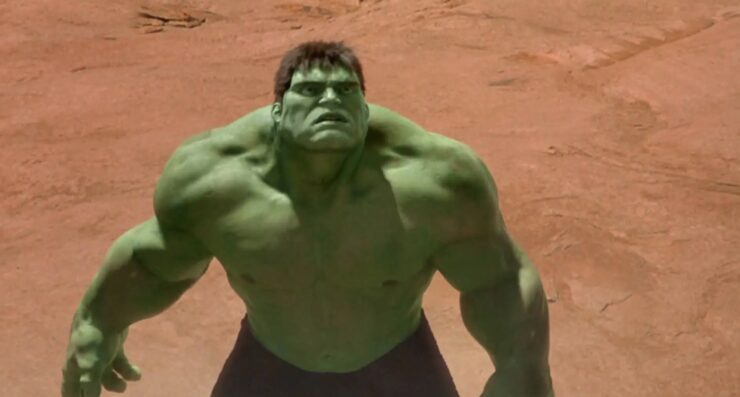
There are certain films you see that never really linger in your mind. Superhero films have particularly come under fire for feeling disposable in the modern era. Hulk isn’t a pleasant and fun experience, and some of it doesn’t really click for me—such as the comic book frame style that Lee uses at certain points, which doesn’t seem to really add much—but it’s very memorable, even unique. Partly this is because, as Ebert mentions, it’s more about a man who is cursed rather than a superhero, and partly it’s because Lee’s speciality of repression lines up so well with the concept behind the Hulk itself. I don’t know if we’ll ever get a movie about the character that concentrates this seriously on the psychological core of the material in such an unsettling way. Perhaps it isn’t a mainstream success, but it will always be lurking in my memories, and impossible to repress.
Aamir Mehar is a freelance writer and a lifelong fan of fantasy and science fiction. You can find him on Twitter: @Aamirmwriter










